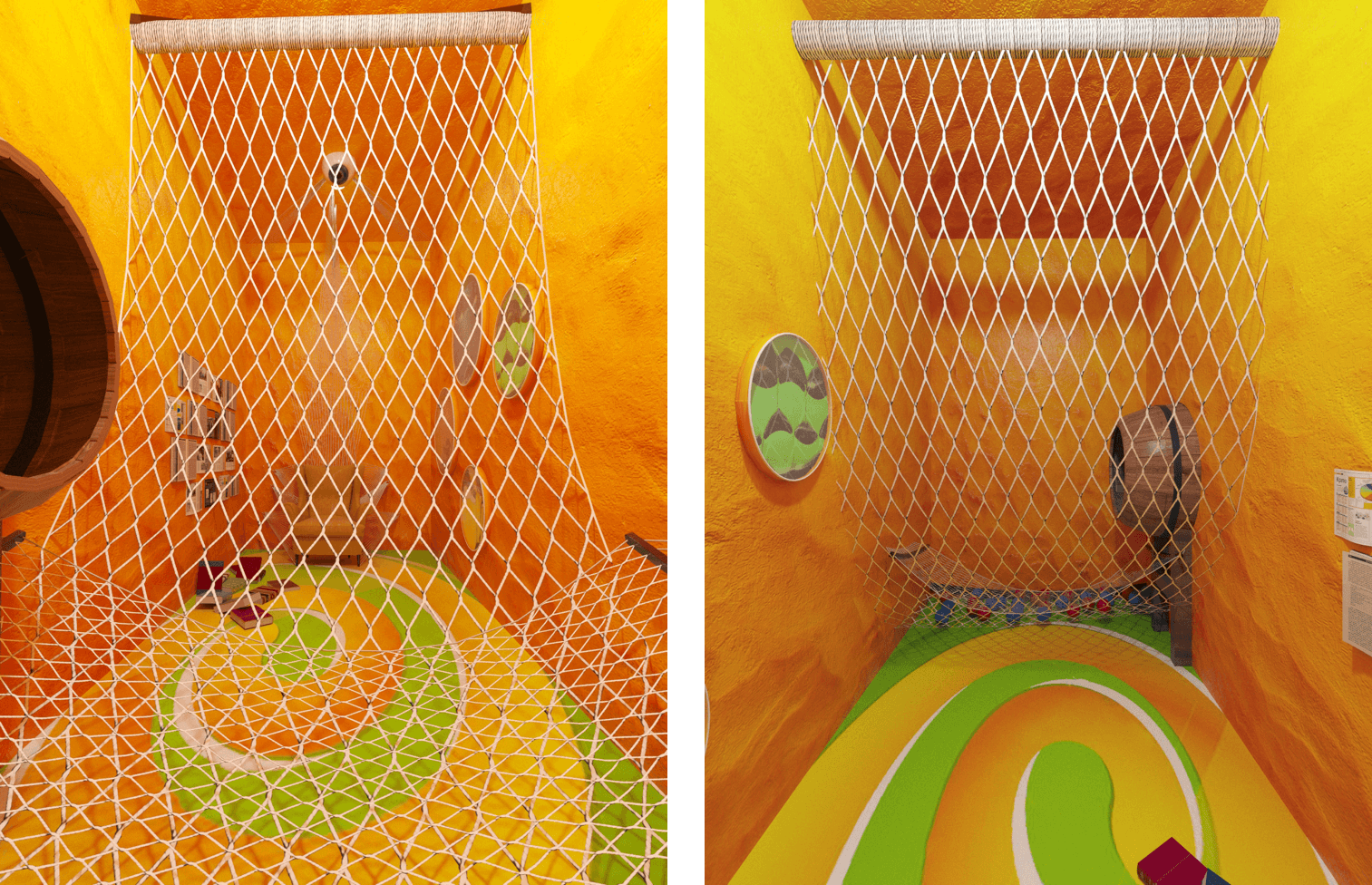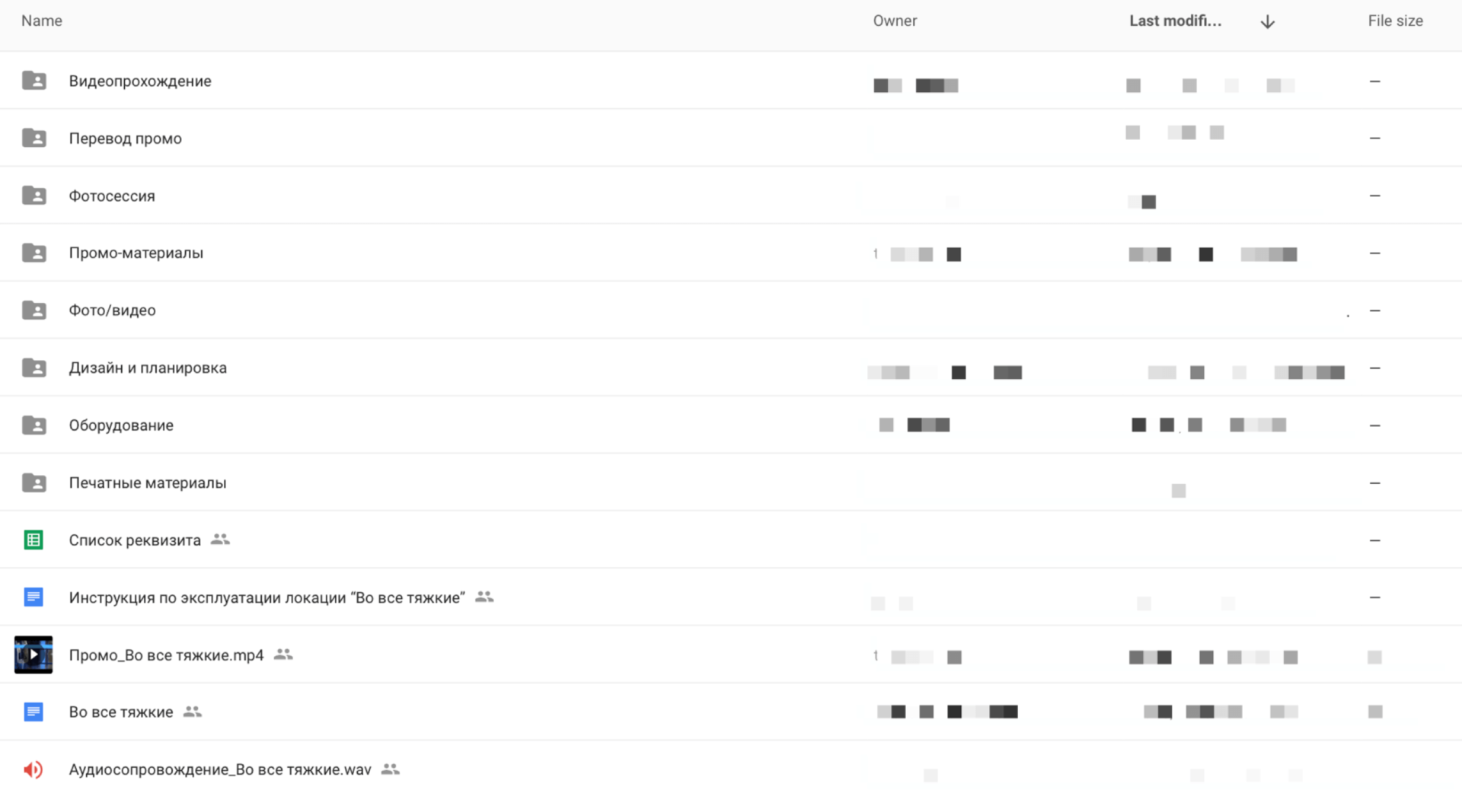How we got smarter and learned how to open quests twice as fast

In July 2015, the first franchisee from Kaliningrad joined Quest House. According to our calculations, the quest was supposed to open in 3 months, and after 3 months we planned to launch the second location. Haha In fact, everything turned out differently - the first location was opened only six months later, and the second one - in a year.
Under the terms of the franchise, the partner pays us 10% of the quest's revenue, so each undiscovered franchisee is a monthly loss of money.
')
Looking ahead, I will say that even a year to open is not an anti-record. We have several partners who bought a franchise, disappeared and for six months already (this is no joke!) They don’t take a phone and don’t respond to letters. In case they are reading this post now - please call Ekaterina from the development department.
And yet, after a year and a half after the start of the franchise, we managed to reduce the opening time of partners and make this process manageable. But before I reveal all the secrets, I want to tell you how we built quests before and why you shouldn’t do this.
New scenario for each city
If you think about what the quest consists of in reality, the first thing that comes to your mind is the script. It includes three elements: the legend of the location, the plot and a set of riddles.
| Legend | Plot | Riddles |
|---|---|---|
| A brief description of the story, which introduces players to the essence of what is happening | Sequence of events that will develop in the process of completing the quest | A set of puzzles to be solved to get out of the room |
There are two
Why we used to write separate scripts for each branch
In the middle of 2015, when the first partners began to join us, we wrote a unique scenario for everyone, thought it was very cool and incredibly proud. Of course, there were objective reasons for this.
We did not have a database of ready-made scripts. At that time, only 2 of our own locations worked in Novosibirsk - Breaking Bad and Ghostbusters. These are good quests, but we could not be sure that they would become popular in other cities. Franchisee did not want to risk money.
We opened branches in "advanced" cities. Most of the franchise applications came from cities where several quests of large federal networks with large budgets were already working. Because of this, the entrance threshold turned out to be high - in such a city it is pointless to open a low-budget location with a bunch of paper prompts and a pair of combination locks.
In quests, word of mouth works well, so reviews greatly affect occupancy. In some cities, up to 40% of armor is recommended. In such conditions, a couple of bad reviews from experienced teams could “sink” the location. It was necessary to invent something new and unusual.
To reach a wide audience and not limit ourselves, we took famous movies and TV shows. So get the location of "The Lost Prophecy", "Breaking Bad" and "Hunters". In popular universes, there is always where the writers turn around. Although, of course, this is a big responsibility - it is important not to distort or misquote. For example, the Machaon Publishers, readers have not yet forgiven the new translation of Harry Potter .
Additional complexity with the implementation of scenarios based on epic films is a big budget. There were situations when a partner came in with 400 000 ₽, who wanted to build a location on the “Lord of the Rings”. In this case, we explained that only the “Lord of the code locks” would be obtained with this money and tried to agree to start with something less extensive.
How does a genre affect location success?
Before you finally decide on the script, it is important to pre-select the genre of the quest. Usually, we conduct a small analysis of the city of the franchisee, before making recommendations and insisting on a specific solution. According to the results of this analysis, an idea of the situation in the city is being formed.
For example, last week we entered into an agreement with a franchisee from Cherepovets. His first idea was to open horror. “Okay!” We say, “Let's see what quests do you already have in the city?”
We conduct an express study, look at information on aggregators, study groups in Vkontakte. Result:
| Genre | Number of locations |
|---|---|
| Horror | ten |
| Detective Quest | one |
| Adventure quests | 3 |
| Children's Quest | one |
| Humorous quests | No one |
Once again we look at the table and immediately understand which quest to open is not worth it, because it will become “another one of”.
At the same time, the approach with writing a unique script for each partner had obvious drawbacks.
Individual Script Issues
Protracted coordination. People who want to build a location, as a rule, were already in other quests, got an idea and even partially thought out what scenario they want to see. During the discussion, it is hot, here are the rankings of the most controversial topics:
- Riddles, bayans, which franchisees want to see in the quest, but we know for sure that they will not enter the city because of the high average level of locations.
- Disputes from the series “We want Harry Potter”, but we only have 200 000 ₽, let's cut it down some more. ”
- The cost of mysteries. Spectacular riddles are often expensive and our task is to explain to franchisees why such a puzzle is better than 3 code locks.
Long and expensive construction. The main difficulty with new scenarios is not always clear how much money and time will be spent on repairs. In this case, usually, there is still no well-established work within the team of builders and technicians, there are no proven contacts of props in the city.
There were cases when the builders on the spot disappeared and broke deadlines. Once, several partners who opened the quest jointly, at the repair stage, quarreled among themselves and completed the project.
Kazan is a sad example of how the construction of a cool quest can be delayed. Unfortunately, our colleagues still have not completed the location based on the game Neverhood:

Additional expenses. For a full launch of the quest, in addition to the script and the finished premises are needed:
- Design project of the common area and all rooms of the location, from 35 000 ₽.
- Electronics and wiring diagrams, from 30 000 ₽.
- Photo session in the location for placement on the site, from 3 000 ₽.
- Quest audio accompaniment - music, sounds and voice replicas, from 5 000 ₽.
- Video support - for those quests that use monitors, from 1 500 ₽.
- Promo video for advertising locations, from 5 000 ₽.
Total - 79 500 ₽ to at least complete the quest to launch.
The obvious solution
At one time, we noticed that many of our colleagues from other networks chose a different path - they opened the same quests in all cities. Yes, not all their locations lived for a long time, or at least paid off, but during the time we opened 5 branches, they managed to open 15. It became obvious that the approach using ready-made scripts was viable. The main thing is that the set of such scenarios includes all possible discovery options: in small cities (Arzamas, Ulan-Ude), in one million people (Moscow, St. Petersburg) and in tourist centers (Sochi, Sevastopol).
By that time, we have already formed our own database of 32 scenarios. We could choose and recommend to the city a proven scenario in a suitable genre. It was stupid not to scale the available resources.
The first "boxed" quest was "Breaking Bad". This is a quest adventure based on the eponymous series, which showed itself perfectly in Novosibirsk. We chose it for several reasons:
- medium level of complexity and technical equipment, which is suitable for most cities - mechanical and electrical puzzles, plus a pair of chemical tricks,
- ready design project that is easy to scale to other rooms,
- simple electronics that we could make in Novosibirsk and send to another city.
The last point is very important, because often franchisees get stuck at the stage of selecting an electronic engineer on site. A good electronics engineer is like a girl from Vkontakte - it's hard to find and easy to lose.
We collected information on ready-made successful scenarios and in parallel began work on scaling others. Received such Google folders:

Here you can find all the information on the location, which can be useful, up to the shopping list in Ikea and Leroy Merlin.
We turn to the most interesting!
How to reduce the opening time
I have just rechecked the opening times for unique scenarios in our network. From the moment of signing the contract to the first paid-up, the average time is 190 days, the median is 173 days.
Compare with the statistics of box quests:
Arzamas, "Breaking Bad" - 100 days,
Ulan-Ude, “Freddie” - 138 days,
Kemerovo, “The Lost Prophecy” - 115 days.
It may seem that a one or two month difference is not significant, but it is not. Everybody wins from this extra month.
The payback period of franchisee investments is reduced, they more quickly reach the operating profit and open new locations. We, as a management company, earn more on royalties.
The recent experience of building a turnkey quest in Slovakia has shown that we still have something to work on — the opening time can be reduced to 45 days. To do this, we want to expand the electronics production shop and organize mobile construction teams that can help the franchisee on site.
PS Yesterday we conducted and recorded a webinar, where we discussed with the potential franchisee how we will change the classic format of quest rooms in 2017 . If you are interested in the life of quests "from the inside out" - I invite you to look.
Source: https://habr.com/ru/post/321026/
All Articles